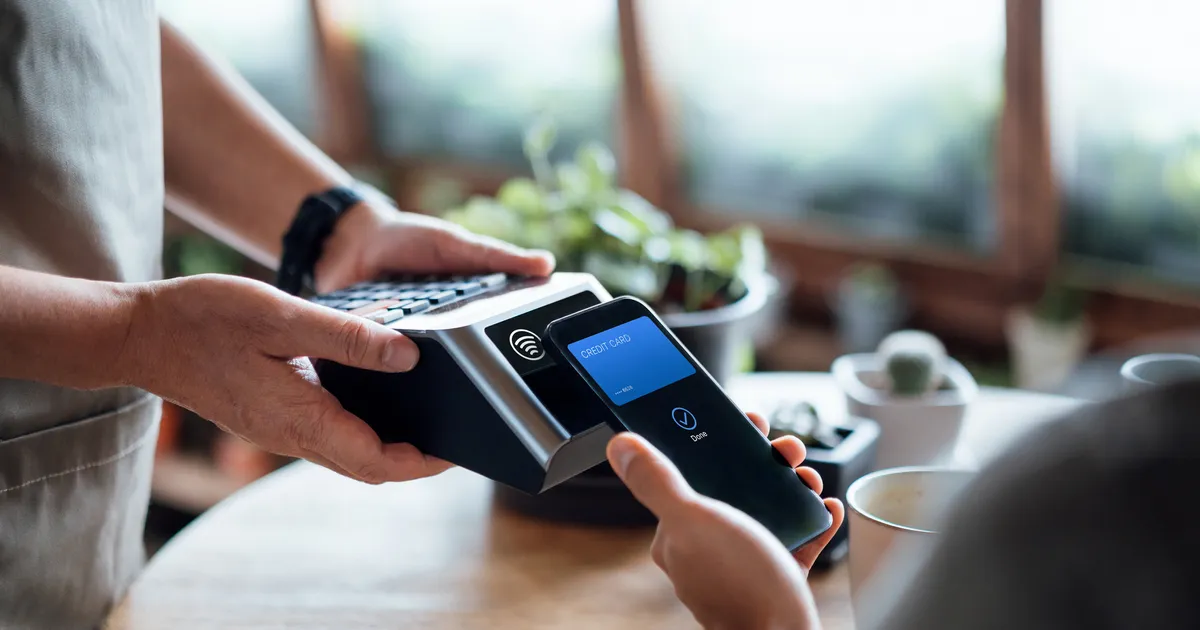Running a business without the right tools is like driving with the parking brake on. A POS system can be the game-changer that accelerates growth and streamlines operations.
A POS system enables businesses to manage sales, track inventory, and process transactions. By switching to a modern system, you’re unlocking untapped potential.
 AsiaVision/Getty
AsiaVision/GettyWhat Is a Point-of-Sale (POS) System?
A POS system allows businesses to process sales transactions and track important data.1 It typically includes a cash register or tablet, a card reader, a receipt printer, and software that manages inventory, customer information, and sales reports. Beyond processing payments, modern POS systems offer a wide range of features like analytics, employee management, and customer loyalty programs, making them an essential tool for businesses of all sizes. With a POS system, businesses can streamline operations, improve accuracy, and gain insights to help drive growth.
Optimizes the Checkout Process
One of the main benefits of a POS system is that it can speed up the checkout process by automating many of the tasks involved in processing a sale.2 With a POS system, items can be scanned quickly and easily, and prices can be automatically calculated, reducing the likelihood of errors and speeding up the transaction time.
Tracks Inventory in Real-Time
Unfortunately, many retailers know that awful scenario where a customer wants an item and it’s supposed to be in stock, but it’s just nowhere to be found. A good POS system keeps track of your inventory in real-time, which means you always know what products you have in stock and when you need to restock. When you sell an item or receive a shipment, a high-quality POS system shows this immediately. This can help you avoid stockouts and ensure that you always have the products your customers want to buy.
Provides More Payment Options for Customers
A POS system allows you to accept a variety of payment options, including credit cards, debit cards, mobile payments, and more. This gives your customers more flexibility in how they choose to pay, which can improve their shopping experience and increase the likelihood of a sale and even a return visit.
Generates Detailed Reports
As the saying goes, “Information is power” and a good POS system can provide a ton of information. A POS system can generate detailed reports for retailers that provide valuable insights into their business performance. When a transaction is processed, a POS system captures important data such as the item sold, the price, the time and date, and the payment method used. This information is stored in a database, which can be used to generate a wide range of reports. The sales reports and inventory reports a POS system generates can make a big difference.
Simplifies Bookkeeping and Accounting
As you’ve probably picked up by now, a POS system can be an information goldmine for your business. This goes well beyond knowing when to restock items and extends to accounting and bookkeeping information. A POS system can simplify your bookkeeping and accounting by tracking sales, expenses, and other financial data. This can help you save time and reduce errors, which can ultimately save you money.
Improves Customer Loyalty
It may not be the first thing you think of, but a good Point-of-Sale system can be an excellent tool for retailers to improve customer loyalty. One way that a POS system can help to build customer loyalty is by providing a seamless and efficient shopping experience. We mentioned this above and it’s worth restating that with a POS system, checkout times can be reduced, and payment options can be expanded, which can help to reduce customer frustration and improve their overall experience.
Saves You Time and Money
A POS system can save you time and money by streamlining your business processes and automating repetitive tasks. By reducing the time you spend on manual tasks, you can focus on more important aspects of your business, such as marketing and customer service. By minimizing errors and improving efficiency, a POS system helps cut down on operational costs while speeding up transactions.
Maximize Your Potential With a POS Upgrade
A POS system can be a game-changer for your business. By optimizing the checkout process, providing more payment options, tracking inventory in real-time, generating detailed reports, simplifying bookkeeping and accounting, improving customer loyalty, and saving you time and money, a POS system can help you run your business more smoothly and profitably. If you haven’t already implemented a POS system in your business, now is the time to consider doing so.